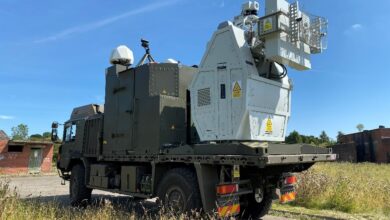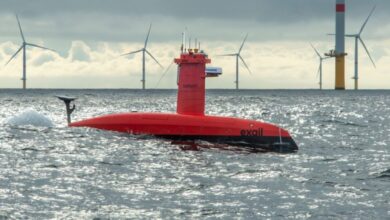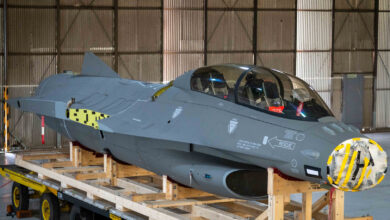Denmark is looking to install a new air defense radar on the Faroe Islands to monitor the North Atlantic, which also covers the airspaces of Iceland, Norway, and Great Britain.
The move was announced during a recent meeting between Danish defense minister Troels Lund Poulsen and Faroe Islands foreign affairs minister Høgni Hoydal.
The new radar system will detect threats within an area of 400 kilometers (248 miles).
“The enormous extent of the Arctic and the North Atlantic makes close security cooperation with the Faroe Islands and Greenland necessary,” Poulsen said.
“Therefore, I welcome the Faroese commitment to re-establish an air warning radar at Sornfelli, as it is a significant contribution to our common security.”
Fungerende forsvarsminister, Troels Lund Poulsen, har besøgt det gamle radaranlæg på Sornfelli med landsstyremand for udenrigsanliggender, Høgni Hoydal.
Den kommende radar skal også placeres på Sornfelli🇫🇴 pic.twitter.com/fxbbwkkfHR
— Forsvarsministeriet/Danish MoD (@Forsvarsmin) April 17, 2023
The acquisition and installation is part of Denmark’s Arctic spending plan passed earlier this year that will have a total budget of $56 million.
The project is expected to take several years to complete, as the system will undergo rigorous testing to ensure its operational capabilities.
Emerging Security Concerns
Copenhagen’s decision comes amid a deteriorating security situation brought on by Russia’s invasion of Ukraine.
Countries in Europe have increased their defense spending to prepare for a potential escalation of the year-long war.
Poulsen and Hoydal recognize the need for robust cooperation to ensure Arctic and North Atlantic security.
“I want a close dialogue with the North Atlantic governments in particular in connection with the upcoming defense settlement,” Poulsen stated.
“Together, we must ensure that the defense’s tasks continue to be carried out satisfactorily in the Arctic and the North Atlantic.”
Last year, Denmark announced it was boosting its military preparedness in response to Russia’s “unacceptable” invasion of Ukraine by putting a NATO-operational battalion on alert.












